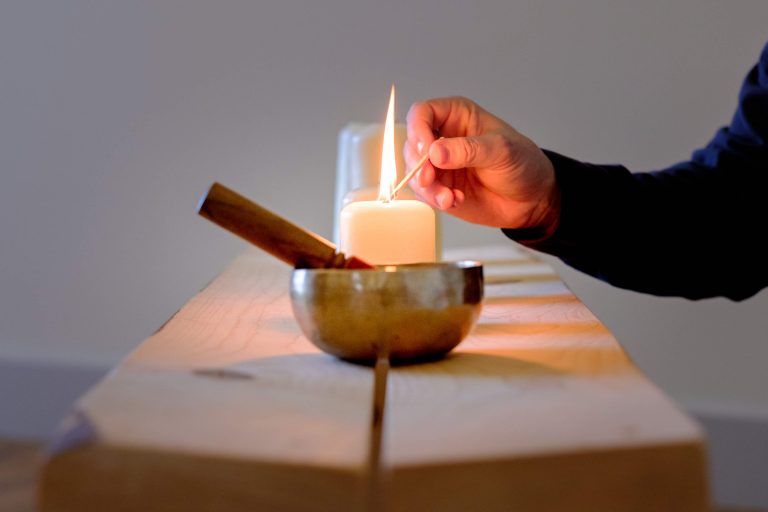Hi everyone, in this post, I will write about how to your meditation journey. There are 5 easy tips that can help anyone begin this wonderful journey.
Gentle, Patient & Kind
The attitude that you bring to your practice is really important. So this is all about being gentle, being patient, being kind to yourself. I often mention that it takes about six months to two years to develop really good concentration. So you can’t expect it straight away! And actually, the more you can accept where you are, the more you can accept that your mind wanders and that you feel restless, that you want to move and all of that… the easier it is to make progress.
We all tend to be our worst critics. And that is why we can be too harsh towards ourselves. So really introducing a kind voice. One that’s encouraging your practice rather than expecting too much or putting yourself under pressure. With meditation, it’s not about trying really hard. It’s usually about using the least amount of effort to keep the practice going.
Learn how to meditate
This is the big thing that is skipped nowadays! It seems these days, people just put on an app and try to meditate. And there’s really very little training around it. I’m not sure that’s setting people up to develop a steady deep practice.
So for example, when you meditate, you’ll often find that you’re really restless. Well, there’s ways of dealing with that. There’s antidotes you can use, there’s techniques you can use to help work with that restlessness. But you have to learn them, someone has to teach you that stuff.
Without training, it’s not easy to even tell if you’re making progress or not. Or when you get stuck, do you know the way to work with that… or does the meditation just plateau? By developing some understanding of the practice, it becomes easier to meditate well. And then it’s easier to be enthusiastic about your practice, you know where you’re at your meditation journey, you know where you’re going, and when you run into difficulties you know how to deal with them.
Learn a Number of Techniques for Meditation
The third suggestion I have is that it’s really good to learn a number of different techniques that can help you on your meditation journey. So I don’t mean trying loads of techniques once or twice, I mean, really learning 5 to 10 techniques really well.
So when I say different techniques here are some examples:
- learning to focus on the breathing
- learning to be aware of the whole body
- developing a practice based around compassion
- A practice just on self-compassion
- A gratitude meditation
- Wisdom/Insight meditation
- Maybe a lying down meditation
- Or a movement practice like learning how to do mindful walking.
By knowing a number of techniques really well, it helps to keep your practice alive. And I’ve often found that my main practice has changed from year to year or even within a year. And it just helps to freshen things up.
Make the Practice yours
The fourth suggestion to help your meditation journey is to really make the practice yours! We all need to learn the same basics. But it’s good then for your practice to become more and more personal.
So for some people, it suits them to do a practice in the morning, for others people it’s better to do it at night.
When your life is really busy a short practice makes more sense than a long one.
Sometimes you’re exhausted and doing a lying down practice with a warm blanket is the best idea. Allowing yourself to rest and recover.
At other times the body needs movement…
So really kind of tuning into your own needs and really making the practice yours.
Practice Meditation in Daily Life
And then finally, the fifth suggestion is to bring your practice into everyday life. And this really is the point of meditation practice.
By practising in a formal way in the morning or in the evening, you’re really strengthening a muscle. You’re learning how to come back, how to become more present, how to come into the body, how to notice what your thoughts are.
But then it’s all about playing with that during the day. It’s all about these little moments of coming back.
You know, connecting with your kids when you’re talking with them. Realising that you’re actually getting really irritated. But realising it early enough, so that it doesn’t turn into, you know, a full-blown explosion!
Or realising that you’re tired and accepting that you need rest.
Or noticing the things that bring you loads of joy and making sure that you make time for them.
All these countless ways that we can bring more awareness into our everyday life. And ultimately, that’s the real point. We practice in a formal way. And that’s really enjoyable. But actually, the real results come right throughout the day.
Hope this is helpful.
Until next time…
Keith




